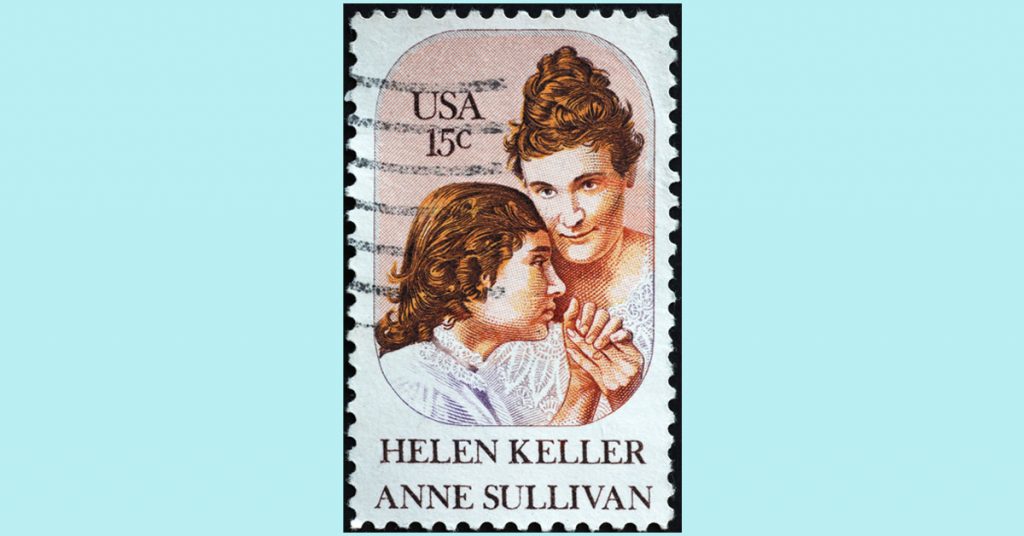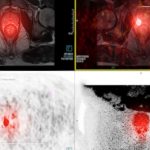In 1984, President Ronald Reagan labeled the last week of June as Helen Keller Deaf-Blind Awareness Week. Every year, on this week, worldwide celebrations take place, including national and state campaigns in the United States.
Helen Keller, full name Helen Adams Keller, was a blind and deaf American novelist and educator. She was born on June 27, 1880, in Tuscumbia, Alabama, and died on June 1, 1968, in Westport, Connecticut. Her education and training are remarkable achievements in the field of education for people with severe limitations. Keller became blind and deaf at the age of 19 months after contracting a sickness (probably scarlet fever). Alexander Graham Bell examined her when she was six years old. He sent her to a 20-year-old teacher named Anne Sullivan (Macy), who worked at Bell’s son-in-Perkins law’s Institution for the Blind in Boston.

Keller stayed with Sullivan, a superb teacher, from March 1887 until her death in October 1936.
She went on to become the first deaf–blind person to earn a bachelor’s degree, and during her college years, she wrote her famous autobiography “The Story of My Life”. During her career as an author, she published 12 books and innumerable articles. Helen Keller International was co-founded by her in 1915, and she spent more than 40 years working for the American Foundation for the Blind.
Helen Keller launched Helen Keller International (HKI) in 1915 alongside American pioneer city planner George Kessler. She has been a long-time supporter and advocate for the organization. Blindness and starvation are the causes and effects of HKI’s work. Eye Health and Nutrition are its two main areas of emphasis. Agricultural projects that assist families and villages in growing their own nutritious meals; tackling the world’s leading causes of blindness; and successful attempts to battle malnutrition and blindness in Bangladesh are among its accomplishments. HKI is now working in 22 countries and is one of the most effective charities in the world, with millions of people benefiting from its programs.
Helen Keller became a member of the newly created American Foundation for the Blind (AFB), an American non-profit organization for people who have lost their vision, in 1924. The charity gave her a platform to speak for the concerns of persons who have lost their vision. Her international fame and charm helped her gain big donations for AFB from wealthy individuals such as Henry Ford and John D. Rockefeller. Keller traveled across the country for AFB, assisting in the establishment of blind rehabilitation institutes and state commissions. Keller devoted much of her later life to generating donations for AFB, having worked for the organization for more than 40 years. Today, AFB is a pioneer in providing opportunities for more than 20 million Americans who are blind or visually impaired.1
Keller had created approximately 60 hand signals by the age of seven, which she used to communicate with her parents and ask for items. Her inability to articulate herself, on the other hand, was a constant source of frustration for her. Keller acquired the manual alphabet with the help of her teacher, Anne Sullivan, and was able to communicate through finger spelling.
Keller’s vocabulary has grown to hundreds of words and short sentences after only a few months of working with Sullivan. Sullivan also taught Keller how to read braille and raised type, as well as print block letters. Keller began learning to speak and read lips at the age of nine.
Keller was a voracious reader who kept up with politics and world affairs. Philosophy literature and poetry collections were among her favorite books. She enjoyed studying history, economics, and foreign languages such as French, Latin, and German.
Throughout her life, Keller volunteered for a variety of organizations. She was an outspoken suffragist, a supporter of worker’s rights, and a critic of child labor, but she is most recognized for her dedication to improving the lives of blind and deaf–blind people.
She advocated for programs to prevent blindness, regulations to educate and protect the blind and deaf –blind, and state-funded programs to assist people with impairments with job training and placement as an adult. Keller garnered multiple accolades for her humanitarian initiatives throughout her life. Keller earned the Presidential Medal of Freedom from Lyndon B. Johnson in 1964, the highest honor bestowed by the United States. She earned the Alumnae Achievement Award on the 50th anniversary of her Radcliffe College graduation. Radcliffe also named a fountain in the garden after her instructor, Anne Sullivan, and dedicated the Helen Keller Garden in her honor. Keller went on to win the Order of the Southern Cross from Brazil, the Golden Heart from the Philippines, and the Sacred Treasure from Japan, as well as being named one of Life magazine’s 100 most influential individuals of the twentieth century in 1991.
Helen is a person who made a difference in the world because she was one of the brightest deaf–blind individuals of her day. Her communication abilities and approaches, which she had learned with Anne’s aid, were extraordinary, and they later assisted in the development of new learning methods for other blind or deaf–blind persons. Even more impressive is the manner in which she applied those abilities.
Helen’s limitations were not the focus of her career, but she believed it was critical to educate others about them and to assist others in similar situations. She and Anne traveled to over 39 countries in her later years to assist in the development of organizations for individuals with disabilities. This contributed significantly to the development of current education methods for children with impairments, as it assisted doctors in developing and improving the Tadoma way of communication, as well as discovering that blind and deaf people can hope for a better life. Helen’s biggest benefit from her impairments was that she became a symbol of someone who conquered adversity.
She became a beacon of hope for families in similar situations and their children all around the world.3
- https://learnodo-newtonic.com/helen-keller-achievements
- https://www.perkins.org/helen-keller-faq/#:~:text=With%20the%20help%20of%20her,of%20words%20and%20simple%20sentences.
- https://helenkeller-helps.weebly.com/her-contributions-to-the-society.html

MDForLives is a global healthcare intelligence platform where real-world perspectives are transformed into validated insights. We bring together diverse healthcare experiences to discover, share, and shape the future of healthcare through data-backed understanding.





